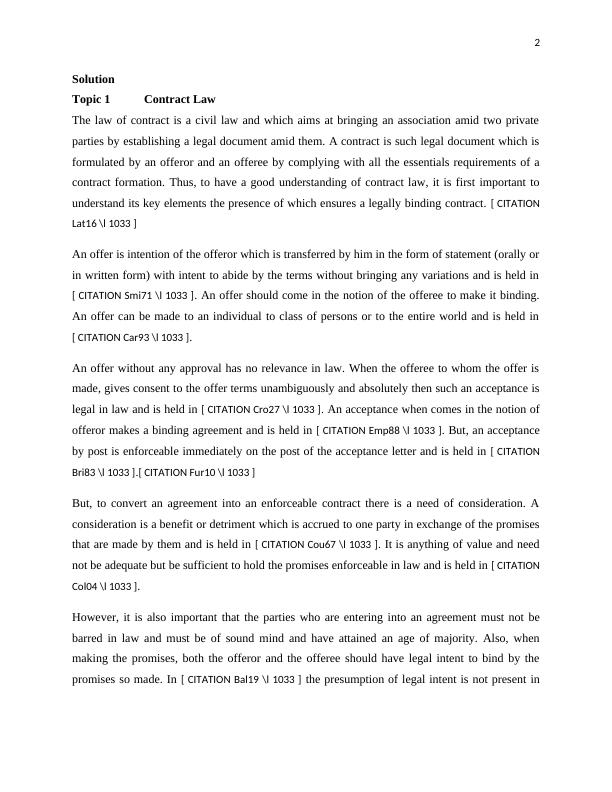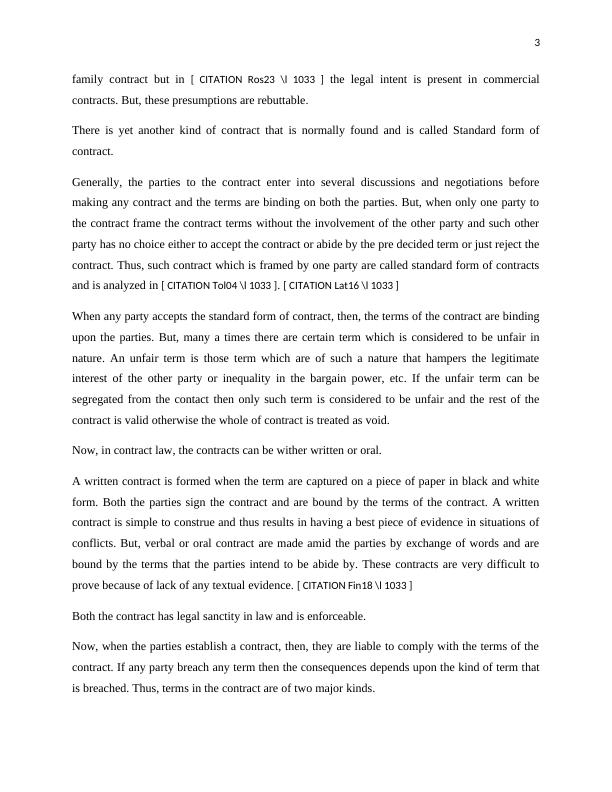Contract Law and The Law of Negligence in Australia
8 Pages2597 Words359 Views
Added on 2023-06-04
About This Document
This article discusses the key elements of contract law and the law of negligence in Australia. It covers the duty of care, breach of duty, damages, and defenses. The article also provides solved assignments, essays, and dissertations on Desklib.
Contract Law and The Law of Negligence in Australia
Added on 2023-06-04
ShareRelated Documents
End of preview
Want to access all the pages? Upload your documents or become a member.
Contract Law and The Law of Negligence in Australia
|8
|2397
|129
Business Law Assignment: Validity of Contract and Negligence Law
|6
|2263
|110
Components of a Binding Contract
|9
|2542
|81
Validity of Contract and Consumer Protection Laws
|6
|2023
|36
Contract Formation and Alternate Dispute Resolution Techniques
|7
|2740
|361
LW120 Principles of Business Law
|6
|1851
|72



